AC Man Houston Saves You The Cost of Replacing Your AC Due To Weather With These Tips
The Houston area is well known for its severe weather throughout the year. Proper preparation is essential. That not only means stocking in emergency supplies but also taking steps to safeguard your home’s HVAC system.
Bad weather can really do a number on your HVAC system if it isn’t properly protected. Try using these three tips to minimize the likelihood of any weather-related damage occurring:
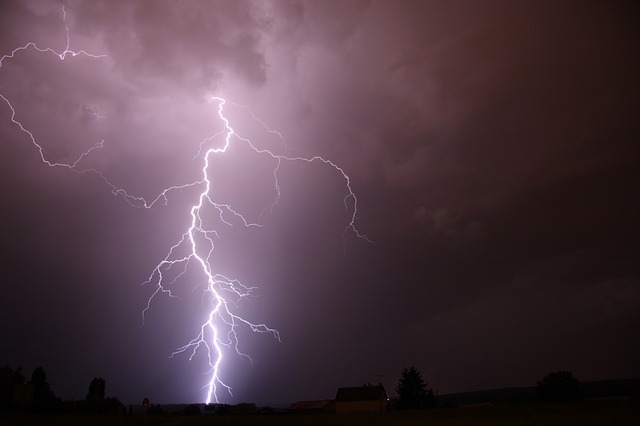 Make sure loose items are put away or tied down. Severe weather often brings gusty winds along with it. If the wind is strong enough, it can wind up blowing objects into your outside condenser unit, causing damage as a result. In severe cases, it can even blow your entire condenser unit over. By securing any loose objects before bad weather hits, you can reduce the risk of damage.
Make sure loose items are put away or tied down. Severe weather often brings gusty winds along with it. If the wind is strong enough, it can wind up blowing objects into your outside condenser unit, causing damage as a result. In severe cases, it can even blow your entire condenser unit over. By securing any loose objects before bad weather hits, you can reduce the risk of damage.- Protect the condenser unit with a cover. The simple act of covering the outside portion of your air conditioning system with an approved cover can go a long way toward protecting it from the weather. This is especially important during periods of heavy rain or flooding.
- Protect your unit from hail. Hailstones can cause significant damage once they get over a certain size. A hail guard can go a long way toward protecting your condenser unit from being damaged by these stones.
After a severe weather event, you should thoroughly inspect your HVAC system to check for any signs of problems. Begin by double checking that all of the wires are still properly connected. Loose wiring or other electrical problems can be extremely dangerous after a storm.
If you notice any problems, contact a Houston AC repairman right away. They can come to your home and inspect your unit, looking for any problems that need to be corrected. By working with a skilled HVAC specialist, you can make sure that your system is in great shape and that there are no problems that need to be corrected after an extreme weather event.
Call now for more information!
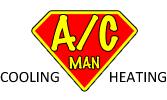
 Gurgling And Bubbling
Gurgling And Bubbling Your air conditioner works hard day and night to accommodate your desire for a chilly environment. This constant stress can eventually take a toll on your AC system. Eventually, your system may begin to cool less and less.
Your air conditioner works hard day and night to accommodate your desire for a chilly environment. This constant stress can eventually take a toll on your AC system. Eventually, your system may begin to cool less and less.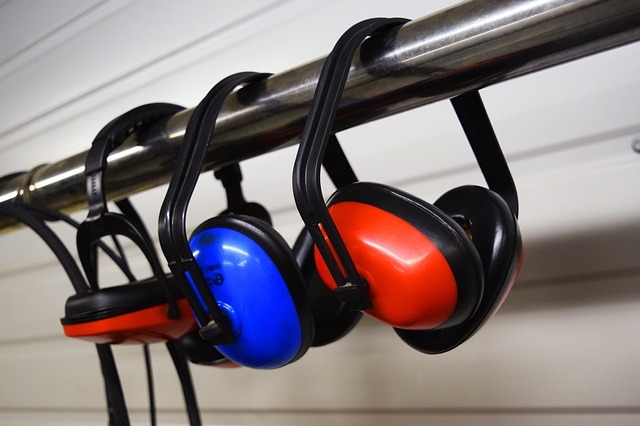 Thanks to the ever advancing technology, air conditioners are more efficient and very silently. As a matter of fact, some of the newest models can run without you noticing they are even on. Nevertheless, the units still produce some sounds such as the initial click with switched on, or the humming sound when at a higher setting. While some of the sounds produced are considered normal, it’s advisable to keep an ear for new/strange noises from these systems. Some of the strange noises may be an indicator that something is broken or you have a malfunctioning part. This is just one of the many
Thanks to the ever advancing technology, air conditioners are more efficient and very silently. As a matter of fact, some of the newest models can run without you noticing they are even on. Nevertheless, the units still produce some sounds such as the initial click with switched on, or the humming sound when at a higher setting. While some of the sounds produced are considered normal, it’s advisable to keep an ear for new/strange noises from these systems. Some of the strange noises may be an indicator that something is broken or you have a malfunctioning part. This is just one of the many 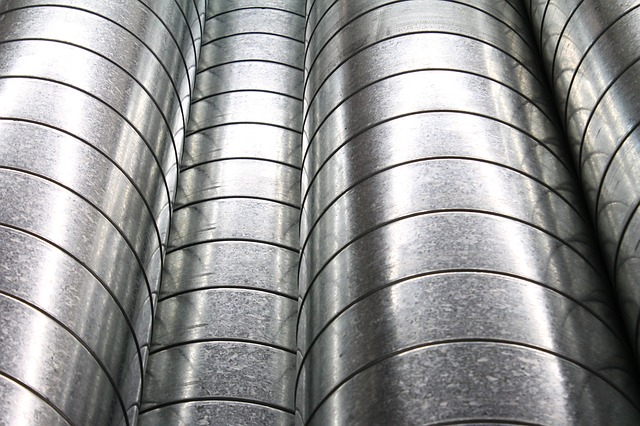 Houston HVAC maintenance companies, such as ours, can clean your air ducts.
Houston HVAC maintenance companies, such as ours, can clean your air ducts. 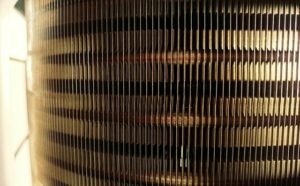 Addressing A Mold Problem
Addressing A Mold Problem 1. Funny Noises
1. Funny Noises Short cycling occurs when your thermostat continuously turns your HVAC system on and off over a short period of time. This prevents the cooling system from completing the cooling cycle. Among the most common reasons that this happens is because the AC system is too large for the home that it’s installed in.
Short cycling occurs when your thermostat continuously turns your HVAC system on and off over a short period of time. This prevents the cooling system from completing the cooling cycle. Among the most common reasons that this happens is because the AC system is too large for the home that it’s installed in. A musty smell may be as a result of a clogged condensate line in the cooling unit, or due to mildew growing in the ductwork. Some of this may be due to the accumulation of water in the drip pan allowing mold to grow. Should the pan be misaligned in a way, then the drain line gets clogged from the stagnating water. While some AC systems will turn off automatically to prevent further damage, the excess water may short out electricals inside. Having the problem addressed, however, eliminates the problem.
A musty smell may be as a result of a clogged condensate line in the cooling unit, or due to mildew growing in the ductwork. Some of this may be due to the accumulation of water in the drip pan allowing mold to grow. Should the pan be misaligned in a way, then the drain line gets clogged from the stagnating water. While some AC systems will turn off automatically to prevent further damage, the excess water may short out electricals inside. Having the problem addressed, however, eliminates the problem. Refrigerant Leak: As discussed above, the refrigerant is the fluid that moves the heat from one spot to another. It moves through the lines that connect both the condenser and the indoor evaporator. Homeowners believe that it is natural for the refrigerant to dissipate. However, the reality is that a loss of refrigerant is due to a system leak. The smallest leak can develop into a major problem because leaks cause drops in cooling powers. They are damaging to the condenser.
Refrigerant Leak: As discussed above, the refrigerant is the fluid that moves the heat from one spot to another. It moves through the lines that connect both the condenser and the indoor evaporator. Homeowners believe that it is natural for the refrigerant to dissipate. However, the reality is that a loss of refrigerant is due to a system leak. The smallest leak can develop into a major problem because leaks cause drops in cooling powers. They are damaging to the condenser.